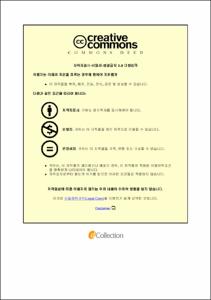감염병 전담병원 간호사의 COVID-19 환자 간호의도에 영향을 미치는 요인:윤리적 간호역량의 조절효과
- Abstract
- 본 연구는 감염병 전담병원 간호사를 대상으로 지각된 행위통제, 행위에 대한 태도, 주관적 규범이 간호의도에 미치는 영향에 대한 윤리적 간호역량의 조절효과를 분석한 서술적 상관관계 연구이다. 본 연구는 U대학병원 생명윤리위원회(IRB)의 승인을 받은 후 연구가 진행되었으며, 자료수집 기간은 2021년 08월 10일부터 2021년 09월 01일까지였다. 자료수집은 U광역시 U대학병원 및 G남도 2개의 감염병 전담병원에서 연구목적을 이해하고 연구 참여에 동의한 간호사 190명을 대상으로 편의 추출하여 시행하였다.
연구 도구는 구조화된 설문지로 일반적 특성 11문항, 간호의도 3문항, 지각된 행위통제 2문항, 행위에 대한 태도 3문항, 주관적 규범 2문항, 윤리적 간호역량 20문항, 총 41문항으로 구성되어 있다. 수집된 자료는 SPSS 24.0 프로그램과 조절효과 분석을 위해 Hayes가 개발한 PROCESS Macro(version 4.0)을 이용하여 분석하였고 연구목적에 따라 Independent t-test 와 One-way ANOVA, Scheffé test, Pearson correlation coefficient을 사용하였다.
연구 대상자의 간호의도, 지각된 행위통제, 행위에 대한 태도, 주관적 규범과 윤리적 간호역량의 평균은 각각 1.04±1.21, 0.86±1.13, 1.44±1.07, 0.99±1.01, 3.07±0.30점이었다. 간호의도는 지각된 행위통제(r=.50, p<.001), 행위에 대한 태도(r=.51, p<.001), 주관적 규범(r=.35, p<.001), 윤리적 간호역량(r=.26, p<.001)과 통계적으로 유의한 양의 상관관계가 있었다. 지각된 행위통제, 행위에 대한 태도, 주관적 규범이 간호의도에 미치는 영향이 윤리적 간호역량 수준에 따라 달라지는지를 알아보기 위해 윤리적 간호역량의 조절효과를 분석하였다. 그 결과, 윤리적 간호역량과 유의한 상호작용 효과가 있는 변수는 지각된 행위통제로 나타났으며(B=0.38, t=2.25, p=.026), 이 외에 행위에 대한 태도가 간호의도에 독립적으로 영향을 미치는 유의한 변수였다(B=0.37, t=4.84, p<.001).
본 연구의 결과를 토대로 신종 감염병이 발생하면 감염병 일차 방어선의 역할을 하는 감염병 전담병원 간호사의 간호의도를 높이기 위해 평상시에 간호사의 윤리적 간호역량을 향상시키기 위한 다각적인 노력이 필요함을 제언한다.|This thesis investigated the moderating effects of ethical nursing competence on the perceived behavioral control, attitude toward the behavior, and subjective norm on nurses’ intention for nurses in hospitals dedicated to infectious diseases based on the theory of planned behavior. Convenience samples of 190 nurses were collected for this study from three hospitals dedicated to infectious diseases in South Korea.
The nurses’ intention, perceived behavioral control, attitude toward the behavior, subjective norm and ethical nursing competence were measured. An Independent t-test, One-way ANOVA, Scheffé test and Pearson correlation coefficient were performed using SPSS (ver 24.0) program to analyed the data. The moderating effect was analyzed using Model Ⅰ of PROCESS Macro.
The average scores of nurses’ intention, perceived behavioral control, attitude toward the behavior, subjective norm, and ethical nursing competence of the study were 1.04±1.21, 0.86±1.13, 1.44±1.07, 0.99±1.01 and 3.07±0.30 respectively. The nurses’ intention showed positive correlations with perceived behavioral control(r=.50, p<.001), attitude toward the behavior(r=.51, p<.001), subjective norm(r=.35, p<.001), and ethical nursing competence(r=.26, p<.001). The perceived behavioral control had significant interaction effects with ethical nursing competence(B=0.38, t=2.25, p=.026). Furthermore, the attitude toward the behavior was a significant variable that independently influenced nurses’ intention (B=0.37, t=4.84, p<.001).
Based on these results, this study proposes that when a new infectious disease breaks out, multifaceted and holistic efforts are needed to enhance the ethical nursing capabilities of nurses in hospitals geared toward containing infectious diseases.
- Issued Date
- 2022
- Awarded Date
- 2022-02
- Type
- dissertation
- Alternative Author(s)
- Mo Mira
- Affiliation
- 울산대학교
- Department
- 일반대학원 간호학과
- Advisor
- 문성미
- Degree
- Master
- Publisher
- 울산대학교 일반대학원 간호학과
- Language
- kor
- Rights
- 울산대학교 논문은 저작권에 의해 보호 받습니다.
- Appears in Collections:
- Nursing > 1. Theses(Master)
- 파일 목록
-
-
Download
 200000604359.pdf
기타 데이터 / 1.49 MB / Adobe PDF
200000604359.pdf
기타 데이터 / 1.49 MB / Adobe PDF
-
Items in Repository are protected by copyright, with all rights reserved, unless otherwise indicated.